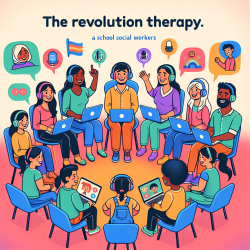Introduction
The COVID-19 pandemic has presented unique challenges for individuals with obsessive-compulsive disorder (OCD) and their families. The research article titled "How are OCD patients and their families coping with the COVID-19 pandemic? A qualitative study" provides valuable insights into these challenges and offers guidance for practitioners aiming to improve therapeutic outcomes through online therapy. This blog will explore the study's findings and discuss how speech-language pathologists and other mental health professionals can utilize these insights to enhance their practice.
Understanding the Impact of COVID-19 on OCD Patients
The study identified five key themes that emerged from interviews with OCD patients and their families:
- Changing point of reference: Confusion and legitimization of OCD behavior.
- Coping strategies were challenged: Too much or too little exposure to obsessional concerns.
- Distress but also relief in some areas.
- Developing a new equilibrium within the family.
- Changes in accessibility and nature of therapy: Perils and merits of online treatment.
These themes highlight the complex interplay between the pandemic's external stressors and the internal dynamics of OCD symptoms and family interactions.
Implementing Research Findings in Practice
Practitioners can leverage these findings to tailor their therapeutic approaches effectively. Here are some strategies:
1. Addressing the Changing Point of Reference
Therapists should focus on helping patients differentiate between normative pandemic-related behaviors and OCD-driven compulsions. This can be achieved by reinforcing the therapeutic goals of reducing compulsions and increasing patients' awareness of their behaviors.
2. Enhancing Coping Strategies
Encourage patients to engage in exposure therapy, even in a limited capacity, to prevent relapse. Practitioners should provide practical advice on managing obsessional concerns and offer remote support to facilitate exposure and response prevention techniques.
3. Supporting Family Involvement
Involving family members in therapy is crucial. Practitioners should coach families to provide validation and support without accommodating OCD behaviors. This approach helps in creating a balanced family dynamic that supports the patient's recovery.
4. Optimizing Online Therapy
While online therapy has its challenges, it also offers opportunities for flexibility and accessibility. Practitioners should strive to create a supportive and engaging virtual environment, utilizing technology to maintain a strong therapeutic alliance and deliver effective interventions.
Encouraging Further Research
The study underscores the need for ongoing research into the effects of pandemics on mental health, particularly for vulnerable populations like OCD patients. Practitioners are encouraged to stay informed about emerging research and integrate evidence-based practices into their therapeutic repertoire.
To read the original research paper, please follow this link: How are OCD patients and their families coping with the COVID-19 pandemic? A qualitative study.










